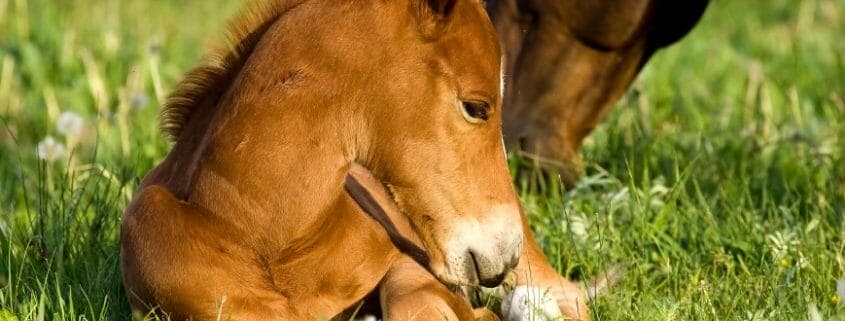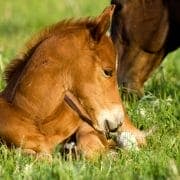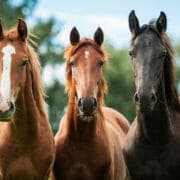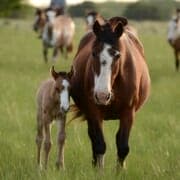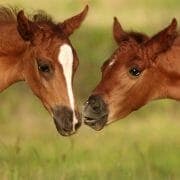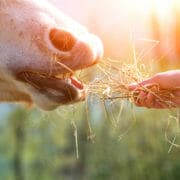Do Phytoestrogens Affect Mare Fertility?
In a word, yes, phytoestrogens affect mare fertility! Both industry observation and published science support this. BUT, we need to be very careful not to just throw all phytoestrogens (which are simply estrogen like compounds found in plants) into the one bucket.
There are many different phytoestrogens, but they don’t all affect fertility. Some, like coumestrol, mainly found in alfalfa/lucerne and clover have quite dramatic negative effects on fertility in multiple animal species, including horses. Others, like the isoflavones found in clover and soybean are not documented anywhere (that we can find) as having negative effects on fertility in mares.
A Few Things To Consider…
There is quite a lot documented on loss of fertility in sheep grazing pastures dominated by isoflavone rich clover. But we need to consider several things:
1. A sheep’s gastrointestinal physiology is dramatically different to a horse and likely affects how phytoestrogens are absorbed and metabolised.
2. A sheep’s reproductive tract physiology is also very different, meaning phytoestrogens are unlikely to affect fertility in the two animals species in the same way; and
3. The sheep were consuming isoflavone rich forage. i.e. the ingredient containing the isoflavone was the major ingredient in the diet. Consider ingredients like soybean in a horse’s diet.
Yes, they contain isoflavones, but they are only fed as a small percentage of the total daily diet. So actual isoflavone intake is minimal… so negative intakes on fertility are far less likely.
Not All Phytoestrogens Are The Same
When looking at phytoestrogens in feed ingredients you may be using and considering their potential impact on fertility, keep in mind phytoestrogens from different ingredients aren’t the same. And that the amount of an ingredient you feed per day will affect total phytoestrogen intake. And also remember that almost every feedstuff you feed can potentially contain phytoestrogen, even grasses!
And the tricky thing with forage phytoestrogens is that both the plant variety and the environmental conditions it is grown in will affect its phytoestrogen content. For example, clover or lucerne that is attacked by aphids will have a higher coumestrol content. Or nitrogen deficiency in clover can have double its normal isoflavone content.
Complex huh!
If your mares are experiencing fertility issues it is certainly worth considering phytoestrogens, but as always, look at your basic nutrition first to make sure your mares’ most important nutrient needs are met.
FeedXL can help you do this! (If you’re not yet a member, check out our plans here)
If you do think phytoestrogens may be to blame, from my reading I would suspect your forages first, especially if you are using clover or lucerne/alfalfa. It is highly unlikely other ingredients like soybean or flax that are typically fed in much smaller amounts will be your culprits.
Do you have a question or comment? Do you need help with feeding?
We would love to welcome you to our FeedXL Horse Nutrition Facebook Group. Ask questions and have them answered by PhD and Masters qualified equine nutritionists and spend time with like-minded horse owners. It’s free!
Click here to join the FeedXL Horse Nutrition Facebook Group

